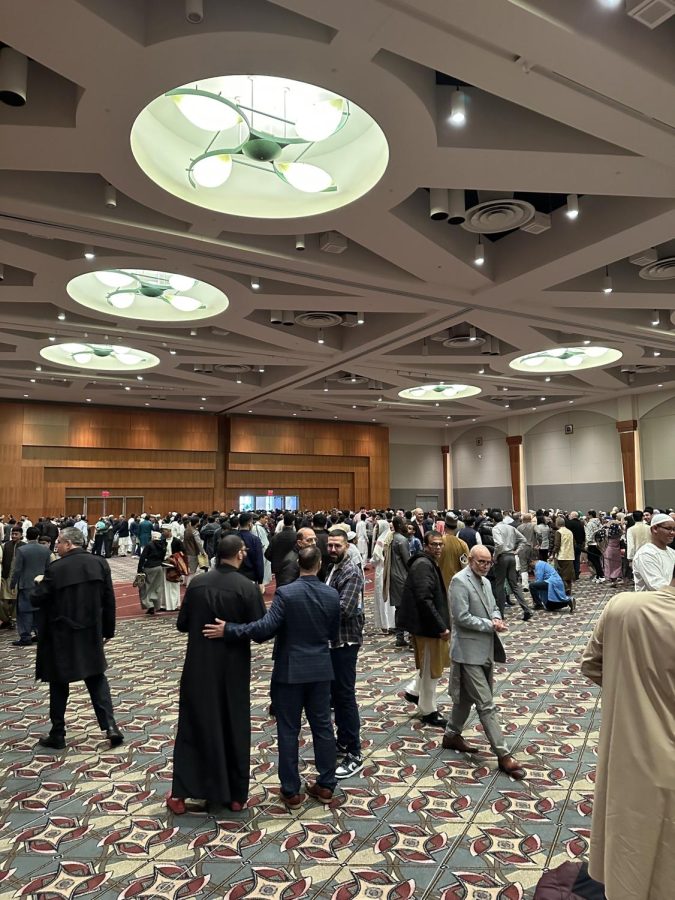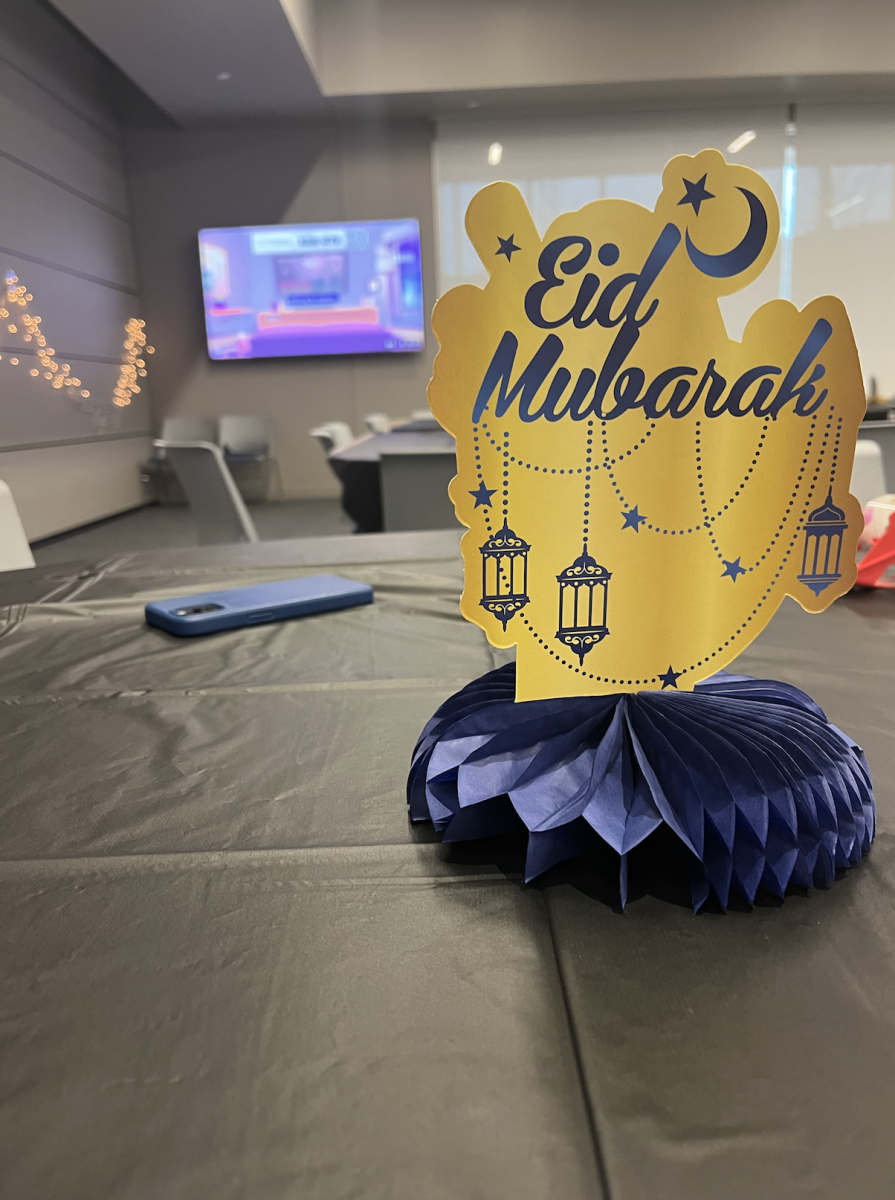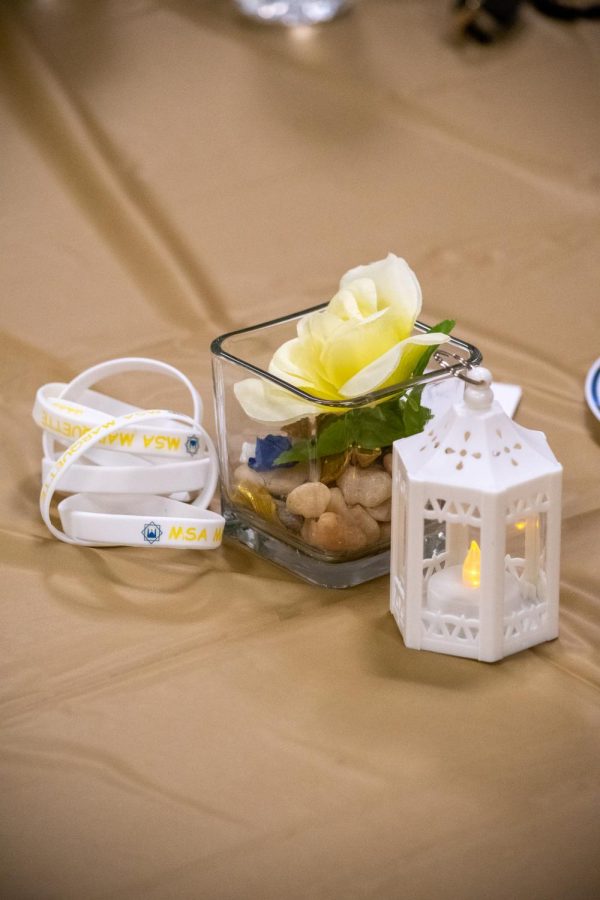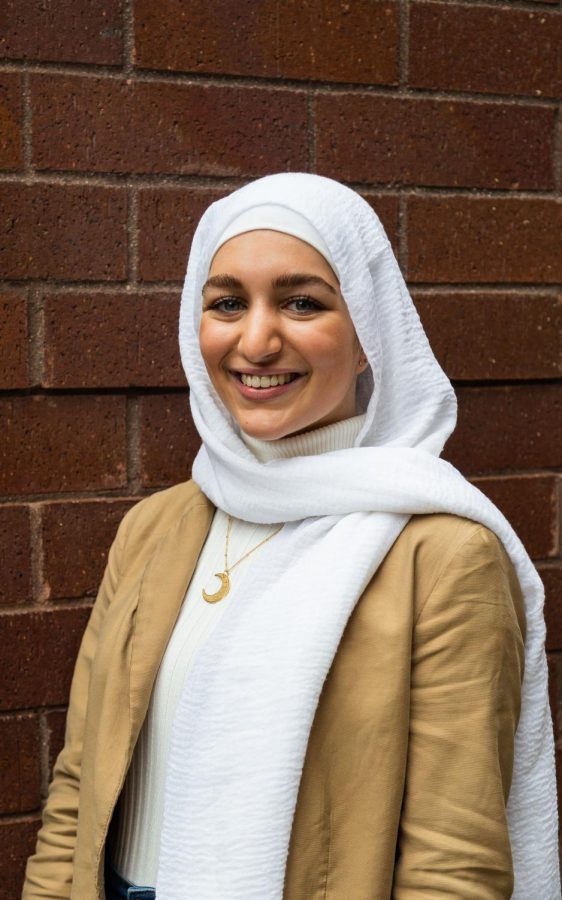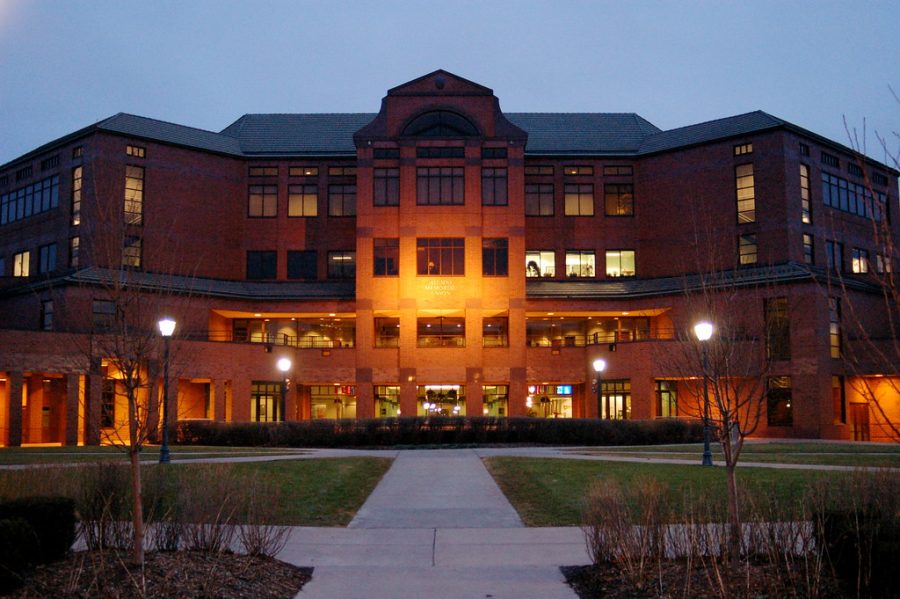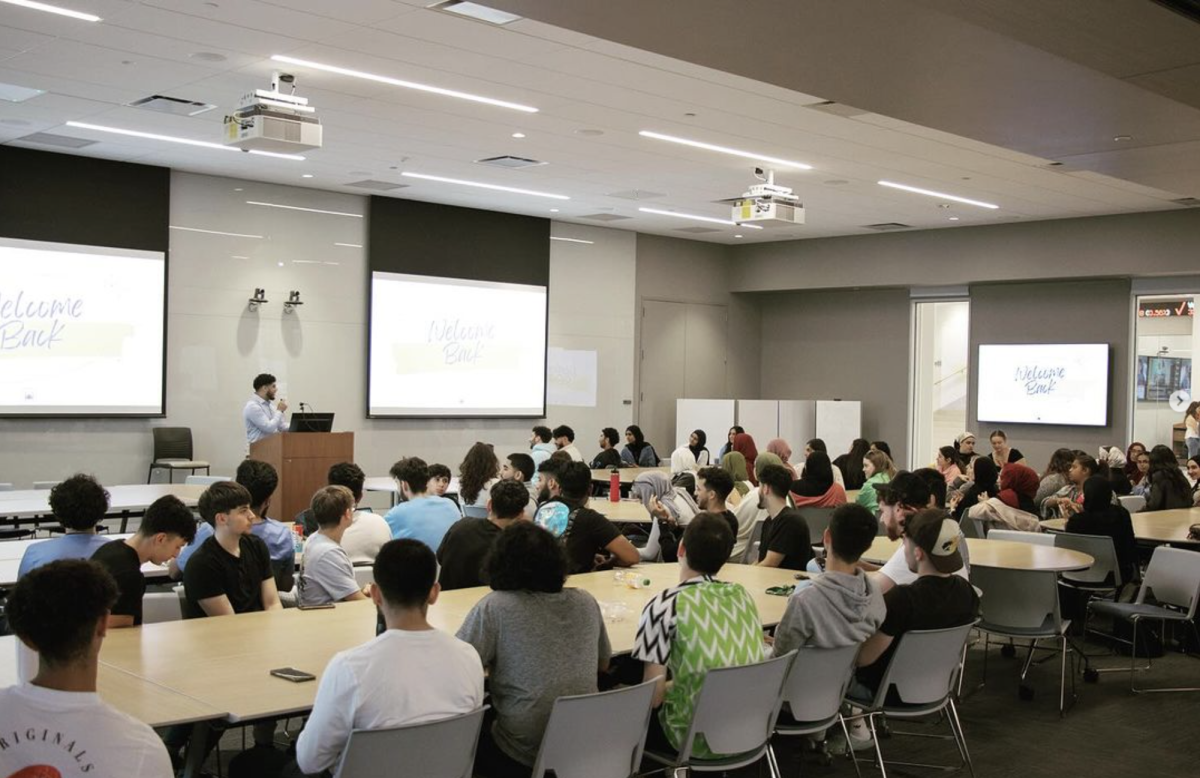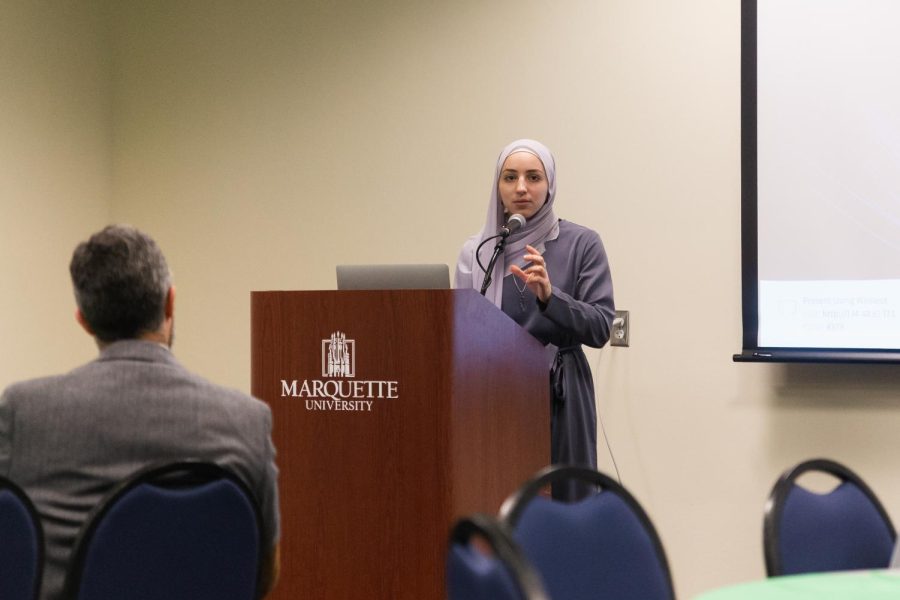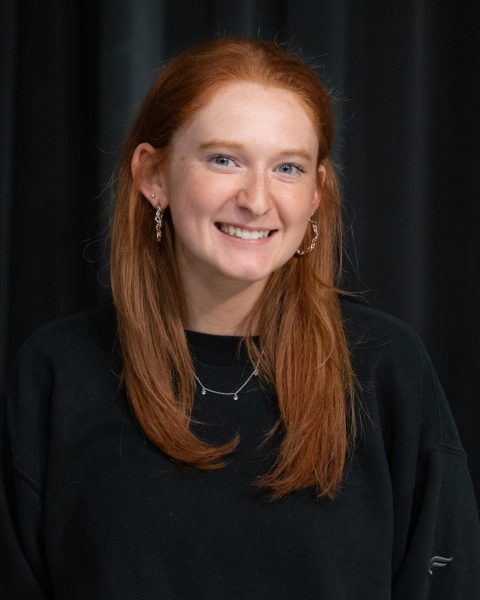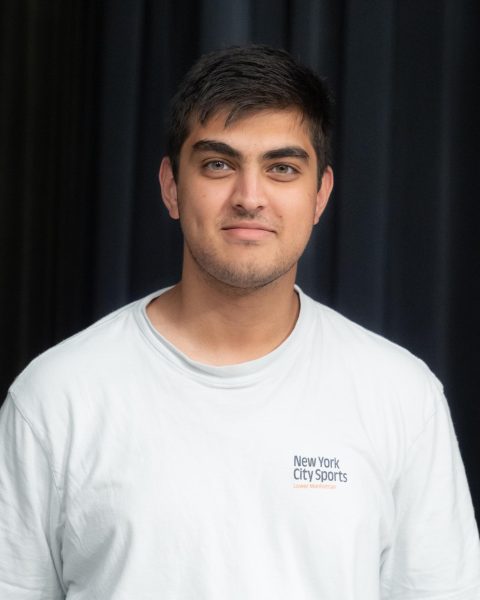After a month of fasting from dawn to dusk, Muslims around the world celebrated Eid-al-Fitr. The holiday, marked by the sighting of the new moon, includes exchanging greetings and gifts, praying the Eid prayer as a community and preparing traditional dishes.
Some Marquette University students belonging to the Muslim community took part in Eid-al-Fitr festivities at home with their family and friends, as well as locations near campus.
Yusra Khaja, a sophomore in the College of Health Sciences and treasurer of Marquette’s Muslim Student Association, said she is grateful for the opportunity to commute to Marquette. This year, Khaja was able to spend Eid-al-Fitr alongside her family at home.
For Khaja, Eid-al-Fitr is all about the sense of unity that is felt among the Muslim community during this time.
“To me, Eid-al-Fitr feels like something I earned after this long month of fasting,” Khaja said. “It’s just a big celebration that the Muslim community can all take part in together because Ramadan is something that we all went through and participated in together.”
Khaja said there were a few things she learned this past Ramadan while on Marquette’s campus.
“This Ramadan really taught me how to manage my time between my religious life and my daily life as a Marquette student,” Khaja said. “I had to learn how to make my two different worlds work.”
Lema Elkhatib, a first-year student in the College of Arts & Sciences, attended the Eid prayer hosted by the Islamic Society of Milwaukee April 21. The prayer hosted by ISM took place in Milwaukee’s Wisconsin Center.
The Eid prayer which is a special prayer performed by Muslims consists of two units, which are called rak’ahs, and is led by a male who is titled “Imam.” Once the prayer is completed, it is followed by a sermon and then Muslims greet each other and exchange hugs as a sign of joy and unity.
Elkhatib said that the service brought Muslims from all across the city to join together to share in the happiness that Eid brings. For Elkhatib, she said dressing up for the occasion and seeing the outfits that others in attendance were wearing were one of her favorite parts.
“Culturally, Eid is my favorite time to represent my beautiful country,” Elkhatib said. “Wearing the traditional Palestinian attire makes it feel like I’m in my homeland.”
Elkatib said she discovered a lot about herself during this year’s Ramadan.
“Being surrounded by so many Muslims during this time has brought me a lot closer to God,” Elkatib said. “I think I was finally able to feel that connection with God again that I had lost a little bit.”
Abd-Alrahman Rabeeh-Musaitif, a practicing Muslim from the Milwaukee area who attended the prayer service, said the service helped him to appreciate both the past and future of his religion.
“Eid-al-Fitr is a crucial part of my faith, as it marks the end of Ramadan. Though I am sad to see Ramadan go, it’s great to celebrate it and look forward to the next Ramadan and Eid to come,” Rabeeh-Musaitif said.
As someone returning to the Eid prayer after not going for several years, Elkhatib encouraged all those considering attending to give the Wisconsin Center prayer service a chance.
For Marquette students who may not personally celebrate Eid, Khaja said there are still ways they can show their love for Muslims on campus that do.
“I think that the best thing someone could do to show support is to just educate themselves,” Khaja said. “Researching the religion and educating themselves on what Eid actually is and why we fast during Ramadan can go a very long way, and I just really would appreciate anyone who does that.”
Uzair Qhavi contributed to this report.
This story was written by Erin Howard. She can be reached at erin.howard@marquette.edu



